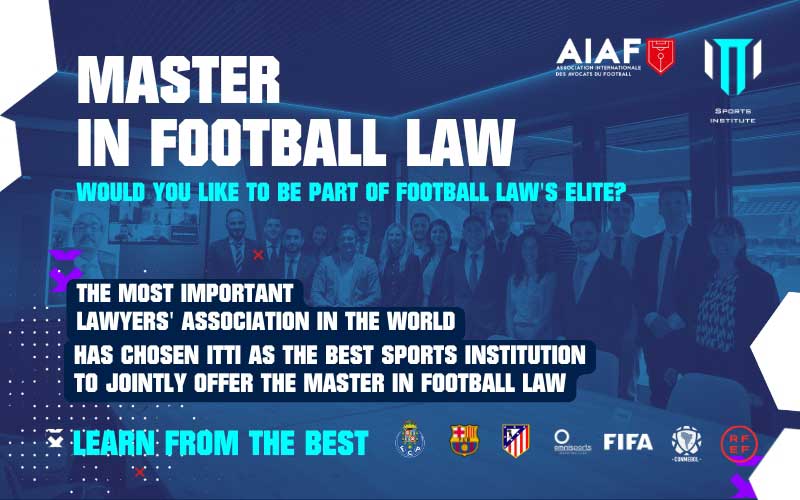Hasta hace muy poco, el deporte universitario en Estados Unidos se regía por un modelo fuertemente controlado por la NCAA (National Collegiate Athletic Association) y basado en el principio del amateurismo. Así, los atletas universitarios no eran considerados empleados, sino estudiantes con beca deportiva. La idea era que la participación deportiva formaba parte de la experiencia educativa, no de una actividad profesional. Por eso, no podían recibir salarios ni compensación económica directa por competir para su universidad.
Solo se permitía disfrutar de becas deportivas: cubrían matrícula, alojamiento, comida y, desde 2015, un stipend adicional llamado cost of attendance (gastos estimados de vida en el campus) y beneficios relacionados con la educación: material escolar, tutorías, equipo deportivo, viajes con el equipo.
Pero en ningún caso podían recibir pagos en efectivo por jugar, ni ingresos personales derivados de su fama como atletas. Así, no podían cobrar por uso de su nombre, imagen o semejanza (Name, Image and Likeness o NIL) en publicidad, patrocinios, redes sociales o productos. Tampoco podían firmar contratos con marcas, ni recibir premios en metálico fuera de los estipulados por la NCAA, ni las universidades tampoco podían ofrecer incentivos económicos directos más allá de la beca reglamentada.
La NCAA argumentaba que el amateurismo preservaba de alguna manera la “pureza” del deporte universitario, mantenía la igualdad entre instituciones. Y protegía el carácter educativo de la experiencia. Por otro lado, la masa crítica señalaba que mientras las universidades y la NCAA generaban miles de millones de dólares por derechos de TV, merchandising y entradas, los atletas especialmente en fútbol americano y baloncesto masculino no recibían nada por estos conceptos de forma directa
Artículo completo
Universidad o negocio: quién gana en la guerra del deporte universitario en Estados Unidos
El modelo “aficionado” y sus cuestionamientos legales
Hace unos años se empieza a cuestionar la normativa y aparecen los primeros casos judiciales que agrietan el sistema. Así los primeros precedentes del debate sobre compensación y justicia económica son los casos judiciales de O’Bannon v. NCAA (2014) y NCAA v. Alston (2021).
O'Bannon v. NCAA (2014–2016): El caso liderado por Ed O’Bannon cuestionó que la NCAA obtenía beneficios con la imagen de exatletas sin remuneración alguna. La jueza Claudia Wilken falló que ciertas restricciones eran anticompetitivas y ordenó permitir que las instituciones otorguen, por ejemplo, becas de coste de asistencia o hasta 5 000 USD por año en fideicomisos para los atletas. La Corte Suprema no intervino y rechazó revisar el caso.
CAA v. Alston (2021): La Corte Suprema ratificó por unanimidad la decisión del tribunal de apelaciones (9.º Circuito), que consideró que la NCAA violaba la ley antimonopolio al limitar ciertos beneficios educativos a los atletas. La decisión abrió la puerta a compensaciones relacionadas con la educación sin límites estrictos
Leyes estatales (California en 2019) aprobaron que los atletas pudieran cobrar por NIL, obligando a la NCAA a flexibilizar su normativa en 2021.
El NIL y su impacto cultural y económico
Así, desde 2021, tras varias sentencias y legislaciones estatales (como California con la Fair Pay to Play Act), los atletas universitarios pueden recibir ingresos en acuerdos NIL con terceros (patrocinadores, marcas, collectives…) sin afectar su estatus amateur. Estos acuerdos han creado nuevas fuentes de ingresos millonarias para atletas jóvenes, aunque también generan preocupaciones sobre equidad entre deportes masculinos generadores de ingresos y otros más modestos
El acuerdo antimonopolio House v. NCAA (junio de 2025)
En junio de 2025, la jueza Claudia Wilken aprueba un acuerdo histórico de 2,8 mil millones de USD, que permite a las universidades pagar directamente a los atletas por su nombre, imagen y semejanza, con diversas condiciones:
Cada universidad de División I puede destinar hasta 20.5 millones de USD anuales para compensar a sus deportistas, cifra que aumentará con el tiempo
Incluye pagos retroactivos (2016–2024) y creación de una “College Sports Commission” para supervisar los pagos, además de una plataforma (gestionada por Deloitte) para revisar acuerdos superiores a 600 USD
Se plantean ajustes en la gestión de plantillas, becas y transferencias, con atención especial a los deportes de menor ingreso para mantener su viabilidad
Contrarreacción: la orden ejecutiva de Trump
El 24 de julio de 2025, Trump firma una orden ejecutiva cuyo propósito es frenar la comercialización exagerada del deporte universitario, pretende limitar abusos en NIL y pagos de terceros relacionados con "pay-for-play" (pagos inducidos por boosters/patrocinadores para reclutamiento), preservando al mismo tiempo el derecho a patrocinios legítimos, y busca restablecer la uniformidad regulatoria federal. Además, exige a universidades con altos ingresos deportivos fortalecer deportes femeninos y no generadores de altos ingresos (no-revenue sports) en términos de becas y plazas
Tensiones y desafíos futuros
Todo ello ha generado un debate sobre el impacto en deportes no lucrativos, el dilema amateur‑profesional, empleo de atletas, posible legislación (SCORE Act) y riesgos fiscales o legales.
Además, deben resolverse los conflictos que pueden favorecer los pagos directos institucionales aciertos deportes de élite que generan los ingresos más altos frente a otros menos atractivos para los promotores, pudiendo dejar en desventaja a disciplinas como gimnasia, natación o atletismo. La respuesta de Donald Trump busca contrarrestar este desequilibrio obligando a departamentos con altos ingresos a aumentar las becas para deportes no comerciales, o al menos no reducirlas
Por ello se ha propuesto una ley federal unificada -The Student Compensation and Opportunity through Rights and Endorsements (SCORE) Act - que busca estandarizar las regulaciones de NIL de todo el país, evitar que los atletas sean considerados empelados dando inmunidad antimonoploilo a la NCAA y Regular agentes, salud, educación, y crear un “Athlete Bill of Right. Esta ley ha sido aprobada en comités del Congreso en julio de 2025; próxima votación en la Cámara. Existen otras alternativas legislativas como el College Athlete Economic Freedom Act, que protege el NIL de aspiraciones de deportistas internacionales sin afectar su estatus migratorio ó el College Athlete Right to Organize Act, que propone reconocer a los atletas como empleados, permitiéndoles sindicalizarse.
Conclusión
El deporte universitario en Estados Unidos atraviesa una transformación histórica que marca el paso de un modelo rígidamente amateur, controlado por la NCAA, a uno híbrido donde los atletas pueden recibir compensaciones económicas directas por su nombre, imagen y semejanza (NIL). Los fallos judiciales, las leyes estatales y el reciente acuerdo antimonopolio han roto el paradigma tradicional, reconociendo el valor económico que generan los deportistas. Sin embargo, este cambio abre tensiones profundas: riesgo de desigualdad entre disciplinas, impacto sobre deportes no rentables, dilemas sobre el estatus laboral de los atletas y necesidad de una regulación unificada. Las reacciones políticas, como la orden ejecutiva de Trump y las propuestas legislativas federales, buscan equilibrar el nuevo mercado con la preservación del carácter educativo y la viabilidad de todo el ecosistema deportivo universitario. El reto a futuro será encontrar un marco que combine justicia económica, igualdad de oportunidades y sostenibilidad para todas las disciplinas.
Comentarios
Enlaces relacionados
Menú principal












